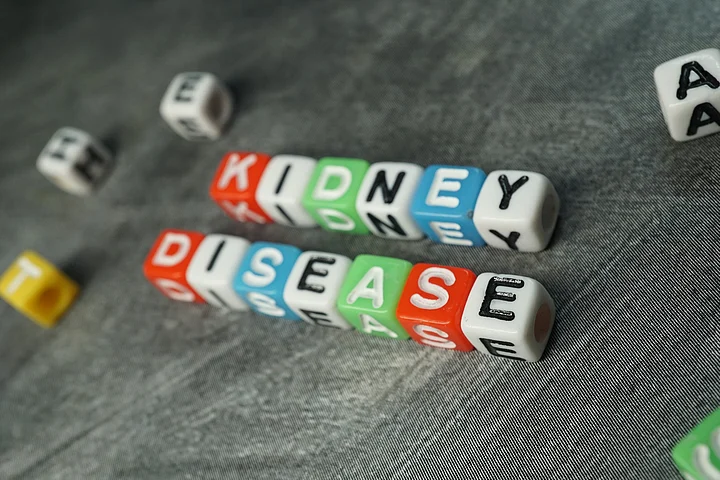Chronic kidney disease is a hidden epidemic affecting millions of people globally. In India, it has been ranked as the eighth leading cause of death. The prevalence of this disease has almost doubled over the past decade and is expected to increase further due to rise in risk factors such as hypertension, diabetes, obesity, stressful lifestyles and unhealthy eating habits. It can affect anyone irrespective of age or gender.
The cost of treating chronic kidney disease and its complications are unaffordable for most people. Between 2.3 to 7.1 million pre-mature deaths occur every year globally due to lack of access to dialysis and transplantation caused by insufficient resources.
Keeping these facts in mind, the theme of World Kidney Day this year is “Access to treatment for Everyone & Everywhere”.
Causes & Symptoms of Chronic Kidney Disease

Chronic kidney disease refers to the gradual, irreversible loss of kidney function leading to progressive kidney damage and failure. Kidneys are responsible for filtering harmful fluids and wastes from the body. They also help control blood pressure, maintain the fluid and salt level in the body, produce hormones to make red blood cells and keep bones healthy.
Kidneys are vulnerable to damage by a range of conditions such as diabetes, hypertension, obesity, as well as urine infections, HIV, malaria, tuberculosis and hepatitis.
Symptoms of chronic kidney disease include blood in urine, increased or decreased frequency of urination, swelling in legs, feet or ankles, feeling tired and fatigued, loss of sleep or troubled sleep, dry and itchy skin, loss of appetite leading to weight loss and episodes of nausea and vomiting.
Who Are at Risk?

Population groups at high risk of developing kidney disease include the elderly, smokers, people with a history of diabetes and hypertension or a family history of diabetes with kidney disease, or those with a history of heavy intake of pain killers for extended durations.
Heart disease and heart attacks also make people vulnerable to kidney disease.
Tests For High-Risk Individuals
- Urine test - Urine is a window to the kidney and urine tests help to find the cause of kidney disease
- Blood test - Blood urea and s. creatinine tests are crucial for determining the degree of kidney function
- Imaging test - Ultrasound helps to assess the kidneys' structure and size
- Kidney biopsy - A sample of kidney tissue is removed for testing, under local anesthesia by a biopsy needle. The biopsy sample is sent to a lab for testing to help determine the specific cause of the kidney disease after which specific treatment can be administered
Some Preventive Measures

While preventive screening is recommended for keeping kidney disease at bay, the adopting healthy lifestyle habits also helps.
- Drinking sufficient water is vital for a healthy body. Consuming plenty of water and other fluids helps the kidneys clear sodium, urea and other toxins from the body. One must drink at least 1.5 - 2 litres of water daily. Optimal fluid intake for a person depends on several factors such as climatic conditions, physical activity and body type and, should generally be in proportion with their sodium intake.
- Home-cooked, wholesome, healthy food with good quantities of fruits and vegetables, moderate sugar and fat and appropriate quantities of proteins (1gm/kg of ideal body weight) can help maintain overall and kidney health.
- Cut down on smoking. Excessive smoking damages blood vessels which reduces the blood flow to kidneys. It also increases the risk of hypertension as well as kidney cancer.
- Engage in regular workouts. Exercise keeps cholesterol, blood pressure and the body weight in control. It also helps improves stamina while boosting immunity and decreasing inflammation in the body. Being overweight increases the risk of developing diabetes and high blood pressure, both of which are major risk factors for kidney disease.
In India, the National Dialysis Scheme focuses on making treatment for kidney diseases accessible to the poorest of the poor in accordance with Ayushman Bharat and this year’s theme for World Kidney Day.
The efforts to improve infrastructure for providing this access have been initiated and this will help make therapies accessible to everyone irrespective of their financial abilities in the days to come. It is also important to harness all energies and resources for developing strategies to prevent kidney disease, which will save heavy costs required for treatment once kidney failure develops.
(Dr Vijay Kher is the Chairman of Kidney and Urology Institute at Medanta)
(At The Quint, we are answerable only to our audience. Play an active role in shaping our journalism by becoming a member. Because the truth is worth it.)
